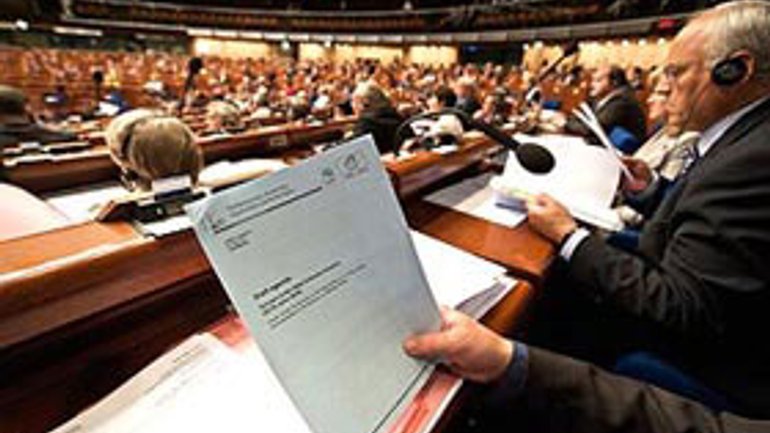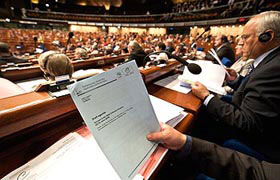PACE Failed to Pass Resolution on Legalization of Same-Sex Marriages Partly Due to Opposition of Churches

 STRASBURG – The Parliamentary Assembly of the Council of Europe held its debate on discrimination on the basis of sexual orientation and gender identity on January 27 but postponed the vote and voted in favor of referring the text back to the committee concerned. Andreas Gross (Switzerland, SOC), explained that so many amendments (80) had been tabled that the Committee on Legal Affairs and Human Rights was not been able to decide on the majority of them. For that reason, he proposed that the assembly hold an initial debate on January 27 and vote on the text at the next plenary session (April 26-30). This was to a certain extent also due to the statement of the Ukrainian delegation. According to experts, the document was not passed because of the fact that churches and religious organizations opposed the resolution, reports the Institute of Religious Freedom.
STRASBURG – The Parliamentary Assembly of the Council of Europe held its debate on discrimination on the basis of sexual orientation and gender identity on January 27 but postponed the vote and voted in favor of referring the text back to the committee concerned. Andreas Gross (Switzerland, SOC), explained that so many amendments (80) had been tabled that the Committee on Legal Affairs and Human Rights was not been able to decide on the majority of them. For that reason, he proposed that the assembly hold an initial debate on January 27 and vote on the text at the next plenary session (April 26-30). This was to a certain extent also due to the statement of the Ukrainian delegation. According to experts, the document was not passed because of the fact that churches and religious organizations opposed the resolution, reports the Institute of Religious Freedom.
On the eve of the session in Strasburg, Pope Benedict XVI made a statement condemning the legalization of same sex marriages, stressing that laws ignoring differences between genders are against the will of the Creator. The religious community of Ukraine also strongly objected the proposed resolution of PACE.
In its address to the Permanent Delegation of Ukraine in PACE, the All-Ukrainian Council of Churches and Religious Organizations called them to object the resolution.
 In his commentary to the German Wave, the president of the Ukrainian Association of Religious Freedom, Viktor Yelenskyj expressed the conviction that the Ukrainian clergy, particularly, Orthodox, Catholic, and Protestant clergy, will put pressure on the delegation of Ukraine in PACE to object the same-sex marriages.
In his commentary to the German Wave, the president of the Ukrainian Association of Religious Freedom, Viktor Yelenskyj expressed the conviction that the Ukrainian clergy, particularly, Orthodox, Catholic, and Protestant clergy, will put pressure on the delegation of Ukraine in PACE to object the same-sex marriages.
The vote for the resolution in PACE on Wednesday did not take place after Ivan Popesku, the head of the Permanent Delegation of Ukraine, stated to the chairman that the appropriate translation of all the amendments to the document text into one of the PACE’s languages was absent, which made it impossible for all the participants of the session to familiarize themselves with them.









